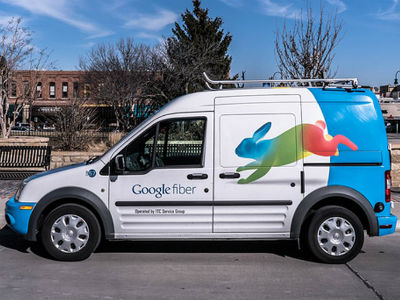Flirtation With L.A, Chicago Could Raise Google Fiber’s Game
The smarter way to stay on top of the multichannel video marketplace. Sign up below.
You are now subscribed
Your newsletter sign-up was successful

Bernstein Research has been outspoken in its bullishness on Google Fiber’s prospects compared to other Wall Street analysts, and in the wake of potential expansions into Los Angeles and Chicago, the investment research firm now wonders if it’s not being bullish enough.
“We have never said that Google Fiber will certainly be large or profitable," Bernstein Research held in a research note issued Thursday under the title: Google Fiber - Have We Been Too Bearish? "Instead, we think it could very well be profitable, which is in stark contrast to the Street's unambiguously negative view,”
Historically, the research group has held that Google Fiber faces a lengthy buildout process that won’t reach more than 10 million homes passed in the next few years, unless it goes after some major cities and surrounding metro areas.
That’s exactly what Google Fiber is now contemplating as it explores (but has yet to commit to) deployments in L.A. and Chicago – the biggest possible undertaking for Google Fiber so far.
If Google Fiber were to go full-throttle build out 75% of those markets over the next five years, it would pass 6.3 million homes and 1.6 million business locations there alone, Bernstein Research said, noting that the move would still limit Google’s exposure to FiOS, which is only deployed to a small piece of L.A.
Google has not formally entered either of those markets, but the prospect is giving Bernstein Research some second thoughts about its future scale. “Our high end estimate of 20-25 million homes passed by Google Fiber may prove less aggressive than we thought,” it said.
In October, the firm estimated that Google Fiber’s network passed about 427,000 homes and 96,000 business locations, primarily in Kansas City and Provo, Utah, and that it had signed up as many as 120,000 paid subs.
The smarter way to stay on top of the multichannel video marketplace. Sign up below.
Despite AT&T’s recent, more aggressive commitment for GigaPower, its fiber-based gigabit platform, Bernstein Research still thinks Google Fiber poses a bigger threat to cable’s broadband business.
While DOCSIS 3.1 will enable MSOs to deliver “comparable headline speeds” to Google Fiber via widely deployed HFC networks, the greater concern is that “Google's entry will make it difficult to raise broadband prices to the extent possible when competing against a more cooperative telco provider.”
